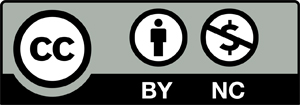Evaluation of Water Quality Index in The Euphrates River, Iraq: By Using the Weighted Arithmetic Method
Abstract
ABSTRACT -Water is the world most significant natural resource. It is a necessary component in the survival of all forms of life. A variety of pollutants, mostly from wastes discharged into the river, pose a challenge to the Iraqi Euphrates River. Effluents from municipal wastewater treatment plants are a significant source of contamination to the river, although industrial effluents and farmland drainage also contribute significantly. Water contamination is a severe problem for human health and the environment. In this study the branch of Shatt Al-Kufa from the Euphrates River in the Kufa city was selected as a case study. “The twelve water quality parameters of pH, Turbidity (Turb.), Dissolved oxygen (DO), Alkalinity (Alk.), Total Dissolved Solid (TDS), Total Hardness (T.H), Calcium (Ca+2), Magnesium (Mg+2), Sodium (Na+), Potassium (K+), Chlorides (Cl-1) and Sulphate (SO4)” were studied over a period of six months (July to December 2023) This study aims to evaluate the water quality of Shatt al-Kufa for drinking use, for this purpose, the water quality index was applied. The Results of the overall WQI according to the Weighted Arithmetic Method were categorized as good at kufa and manathera stations (90.79and 96.073) respectively. High turbidity and SO4 concentrations were the primary factors that reduced the water quality index at two of the stations, according to the results


